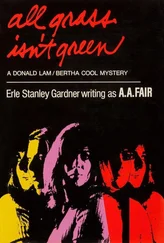It was as if the tubes in the bow and stern of the submarine had fired phantom torpedoes at nonexistent targets. The twelve thousand or more dead registered to his account didn't count. Was the naval high command embarrassed because of the only roughly calculable number of drowned children, women, and severely wounded soldiers? Or had Marineskos successes got lost in the intoxication of victory that characterized the last months of the war, with their surfeit of heroic deeds? But now his loud insistence could not be ignored. Nothing could deter him from playing up his successes whenever the occasion presented itself. He became a nuisance.
In September 1945 he was relieved of the command of his submarine, and soon thereafter he was degraded to the rank of lieutenant. In October he was discharged from the Soviet navy. The justification given for this three-stage dishonorable discharge was “an indifferent and negligent attitude toward his duties.”
When his application to the merchant marine was rejected — on the pretext that he was nearsighted in one eye — Marinesko found employment as the administrator of a supply depot responsible for the distribution of building materials. Before long he saw fit to accuse the director of the collective — with insufficient evidence — of having taken bribes, paid kickbacks to Party functionaries, and trafficked in materials, whereupon Marinesko came under suspicion of violating the law himself by being too generous in giving away only slightly damaged building materials. A special court sentenced him to three years at hard labor. He was deported to Kolyma on the East Siberian Sea, a place that belonged to the Gulag Archipelago, whose daily routine has been written about. Not until two years after Stalin's death did he put Siberia behind him, in a topographical sense. He came back ill. But it wasn't until the early sixties that the damaged U-boat hero was rehabilitated. He was restored to the rank of captain third class, retired and entitled to a pension.
Now I must repeat myself by reverting to something already mentioned. That is why I write here: when Stalin's death was reported in the East and West, I saw Mother cry. She even lit candles. Eight years old at the time, I was standing at the kitchen table and didn't have to be in school, having just got over the measles or something else that itched, was peeling potatoes, which were supposed to go on the table with margarine and curd cheese, and saw Mother crying behind burning candles over Stalin's death. Potatoes, candles, and tears were scarce in those days. Throughout my childhood on Lehmstrasse, and as long as I was in secondary school in Schwerin, I never saw her cry again. When Mother had cried her eyes out, her face took on an absent expression, her I'm-not-home look, which Aunt Jenny remembered from their early years. At the carpentry shop on Langfuhr's Eisenstrasse they would comment, “Tulla's gone and bashed in the windows again.”
After she had cried long enough for the death of the great comrade Stalin, and then had no expression for a while, we ate the boiled potatoes she had fixed, with curd cheese and a pat of margarine.
Around this time Mother took her masters test and soon became the leader of a carpentry brigade in the Schwerin furniture plant, which produced bedroom furniture according to quota, with instructions to deliver it to the Soviet Union in the spirit of friendship between our peoples. Blurry though her image may have been at the time, to tell the truth, Mother has remained a Stalinist to this day, though when I bring this up in an argument, she tries to downplay her hero to appease his critics: “He was just a human being, you know…”
And around this time, while Marinesko remained at the mercy of the Siberian climate and conditions in the Soviet penal camps, while Mother kept faith with Stalin, and I took pride in my Young Pioneers' neckerchief,
David Frankfurter, cured in the penitentiary of his supposedly chronic osteomyelitis, was making himself useful as an official in Israel s defense ministry. In the meantime he had married. Later two children came along.
And something else happened during these years: Hedwig Gustloff, the widow of the murdered Wilhelm, left Schwerin. From then on she lived west of the border separating the two Germanys, in Lübeck. The glazed-brick house at 14 Sebastian-Bach-Strasse, which the couple built shortly before the murder, had been expropriated soon after the war. I saw a picture of the building, a typical solid single-family house, on the Internet. My son went so far as to post on his Web site the demand that the illegally expropriated house be turned into a “Gustloff Museum” and opened to the interested public. Far beyond Schwerin the need existed for expertly displayed factual information. For all he cared, a bronze plaque could be mounted to the left of the window of the enclosed balcony, announcing that from 1945 to 1951 the first prime minister of Mecklenburg, a certain Wilhelm Höcker, had lived in the expropriated house. He would have no objection to including wording such as “after the crushing of Hitler-fascism.” That was a fact, after all, as the martyrs murder remained a fact.
My son was clever at positioning pictures and icons, tables and documents. Thus one could view on his Web site not only the front but also the back of the mighty granite boulder erected on the southern shore of Lake Schwerin. He had gone to the trouble of providing an enlargement of the chiseled inscription that was barely legible on the photograph showing the entire stone from the rear. Three lines, one above the other: lived for the movement — murdered by a jew — died for germany.
Since the middle line not only suppressed the name of the perpetrator but explicitly characterized Jews generically as murderers, it could be assumed that in zeroing in on this detail — the interpretation offered later — Konny revealed that he had overcome his fixation on the historical David Frankfurter and wanted to demonstrate his hatred for “Jewry in toto.”
Yet this explanation, as well as further searches for a motive, hardly shed any light on what occurred on the afternoon of 20 April 1997. In front of the youth hostel, closed at this time of year and seemingly lifeless, something happened that was not predestined yet played itself out on the mossy foundation of the former memorial hall as if rehearsed.
Whatever had induced the virtual David to respond to a vague invitation and travel, in the flesh, by train all the way from Karlsruhe, where the eighteen-year-old schoolboy lived with his parents, the eldest of three sons? And what had got into Konny to make him seek an actual encounter that would convert into a reality a bosom-enemy relationship that had developed over the Internet and was essentially a fiction? The invitation to the meeting had been slipped so surreptitiously into the rubbish that constituted their communication that it could have been picked up only by the intimate adversary who signed himself David.
Once the youth hostel was rejected as a meeting place, the two of them accepted a compromise. They would meet where the martyr had been born. A good question for a quiz, because my son's Web site named neither a city, nor a street, nor a house number. Nonetheless, the reference presented no problem to someone familiar with the material; and David, like Konny, who called himself Wilhelm online, knew even the most banal details of the damned Gustloff story. As would become apparent during the visit, he even knew that the secondary school Wilhelm Gustloff had attended and that had been named for him after his death was called Peace School since GDR times. My son not only respected his adversary's comprehensive expertise; he also admired him for being a “perfectionist.”
And so they met, on a beautiful spring day, on Martinstrasse, in front of number 2, at the corner of Wismarsche Strasse. David had accepted without comment the particular date Wilhelm chose. Their meeting took place in front of a recently restored stucco facade, intended to make one forget the years and years of decay. They are said to have greeted each other with a handshake, after which David introduced himself to the tall, lanky Konrad Pokriefke as David Stremplin.
Читать дальше











